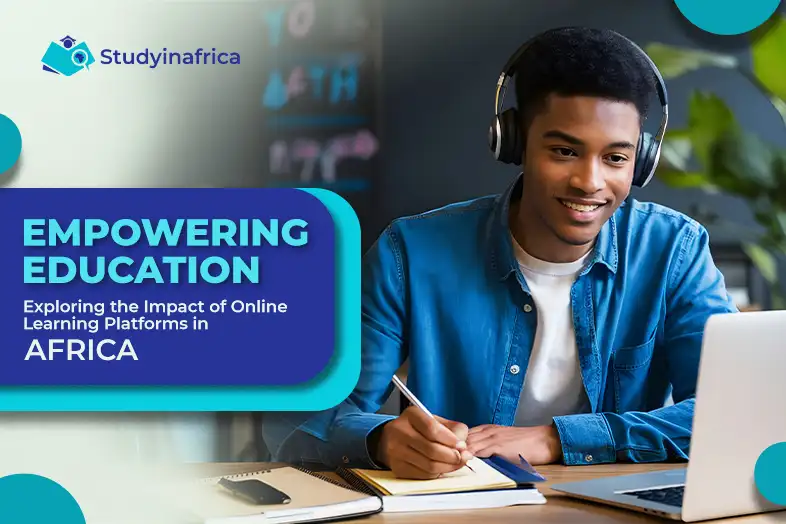
Top 5 Trends Shaping the Future of Study in Africa
Blog Summary
In “Top 5 Trends Shaping the Future of Study in Africa ,” we explore the transformative potential of education in reshaping the continent. The article highlights key trends driving the future of study in Africa, including using technology to expand access, personalized learning experiences, blended learning models, and collaborative learning communities. While promising, the article also acknowledges challenges such as infrastructure constraints and the digital divide that must be tackled to guarantee equitable access to quality education for all. Overall, the article underscores the importance of embracing creativity and collaboration to shape a brighter future for education in Africa.
Table of Contents
Introduction
In recent years, the landscape of education in Africa has undergone a remarkable transformation, with distance learning emerging as a powerful tool to bridge gaps in access, quality, and affordability. As we look to the future, it’s evident that distance education will continue to play a pivotal role in shaping the continent’s educational landscape. In this article, we’ll explore the trends and innovations driving the future of study in Africa and the opportunities and challenges ahead.
Expanding Access Through Technology
Technological advancements have brought about a revolution in education in Africa, offering unprecedented opportunities to expand access and enhance learning experiences. With the extensive availability of smartphones, tablets, and other mobile devices with internet connectivity across the continent, learners now have a wealth of educational resources at their disposal.
Online learning platforms, virtual classrooms, and interactive multimedia content have redefined the traditional classroom model, enabling learners to interact with course materials at their convenience, from any location. Moreover, the incorporation of cutting-edge technologies such as artificial intelligence (AI), augmented reality (AR), and machine learning (ML) has paved the way for personalized learning experiences. Adaptive learning algorithms can customize instruction to suit individual learning styles and paces, while immersive technologies offer hands-on learning opportunities that were previously out of reach. In addition, mobile learning apps and gamification techniques have made learning more interactive and enjoyable for learners of all ages. By harnessing the power of technology, education providers in Africa are dismantling barriers to education and empowering learners reach their full potential in a rapidly evolving digital era.
Customized Learning Experiences
Another key trend in education is the move towards personalized and customized learning experiences. Recognizing that each learner has unique needs, preferences, and learning styles, educators are leveraging technology to tailor learning experiences to individual learners. Adaptive learning technologies, AI-driven tutoring systems, and personalized learning pathways empower learners to learn independently, focus on areas of interest, and receive targeted support when needed. This shift towards customized learning enhances learner engagement and motivation, improving learning outcomes and retention rates.
Blended Learning Models
Blended learning, an innovative educational approach gaining momentum across Africa, combines online learning with traditional face-to-face instruction. This hybrid model offers a holistic learning experience that harnesses the strengths of both online and offline modalities, catering to learners’ diverse needs and preferences. Educational institutions increasingly adopt blended learning models to provide students flexibility, interactivity, and personalized support.
Blended learning transforms the learning environment by integrating digital resources, multimedia content, and collaborative tools into traditional classroom settings. Learners benefit from the flexibility to access course materials and participate in interactive activities online while still engaging in meaningful face-to-face interactions with peers and instructors. This integration of technology into classroom instruction not only enhances student engagement but also promotes active learning and critical thinking skills.
Moreover, blended learning models enable educational institutions to maximize the use of limited resources and infrastructure. By reducing the need for physical classroom space and optimizing scheduling, institutions can accommodate more students and offer a more comprehensive range of courses. Additionally, the flexibility of blended learning allows students to balance their academic endeavours with other commitments, such as work or family responsibilities.
Collaborative Learning Communities
Innovative education programs foster collaborative learning communities where learners can connect with peers, mentors, and experts worldwide. Virtual discussion forums, online group projects, and social learning platforms facilitate meaningful interactions, knowledge sharing, and peer support, fostering learners’ sense of belonging and community. By utilizing the collective wisdom and expertise of the community, learners can collaborate on projects, solve problems, and learn from each other’s experiences, enhancing the learning experience and promoting a culture of lifelong learning.
Addressing Challenges and Ensuring Equity
While the potential for online education in africa is immense, several hurdles must be overcome to ensure its success and accessibility for all. Infrastructure limitations, including inadequate internet connectivity and power supply, pose significant challenges to implementing effective learning programs. Moreover, the digital divide persists, with disparities in access to technology and digital literacy skills exacerbating educational inequalities. Language barriers further complicate matters, as educational content must be accessible in many languages to reach diverse populations across the continent.
Additionally, socio-economic disparities hinder access to education, with marginalized communities facing more significant barriers to participation. To address these challenges, concerted efforts are needed to invest in infrastructure development, expand internet connectivity to underserved areas, and provide training in digital literacy skills. Moreover, initiatives promoting inclusive and culturally relevant educational content and pedagogies can help bridge the gap and ensure that all learners have uniform opportunities to access quality education.
Conclusion
As Africa continues to embrace innovative educational methods to expand access, enhance quality, and promote lifelong learning, the future of study on the continent looks promising. By leveraging technology, fostering collaboration, and embracing innovation, education systems can be transformed, empowering learners and driving african socio-economic development. As we navigate the opportunities and challenges, we must remain committed to ensuring that education remains inclusive, accessible, and equitable for all learners, regardless of their background or circumstances. Together, we can shape a brighter future for education in Africa and beyond.


